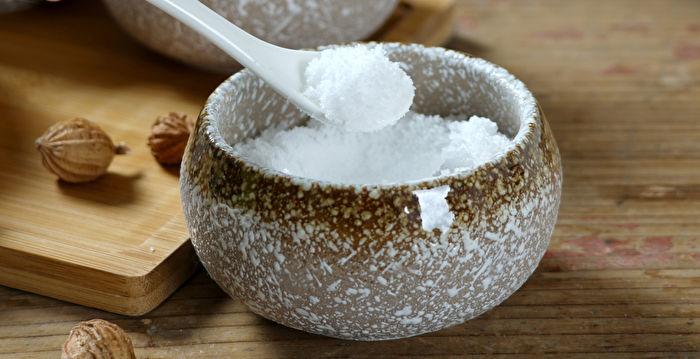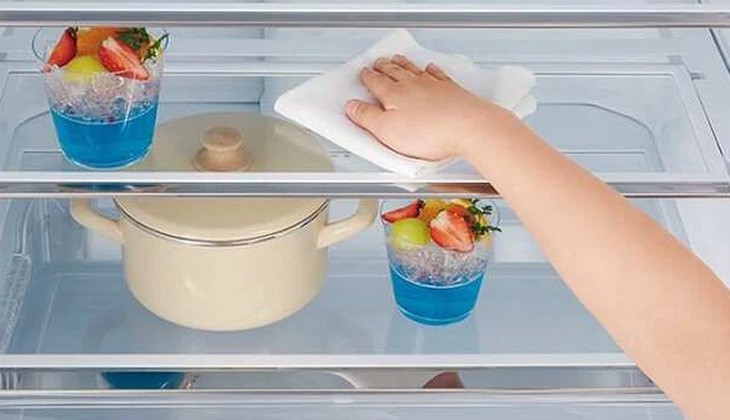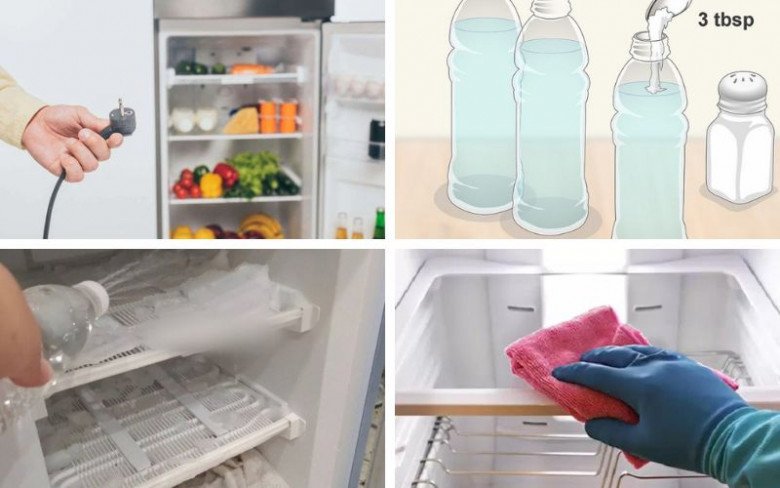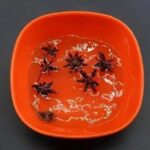1. Eliminate Fridge Odor and Keep Food Fresher For Longer
Salt has dehumidifying properties, and placing a bowl of salt in the refrigerator will absorb moisture, preventing condensation on food and surfaces. This helps maintain the freshness of your food for extended periods.
Additionally, salt is effective in eliminating foul odors and has antibacterial properties, inhibiting the growth of mold and bacteria. As a result, your refrigerator will remain clean and odor-free.

2. Quickly Soften Stains and Clean the Refrigerator
Regular cleaning of the refrigerator is essential to prevent bacterial growth and ensure food safety. Instead of using plain water, add a bit of salt to it for more effective cleaning. For even better results, you can also add vinegar or lemon juice to the water.
Salt, white vinegar, and lemon all possess deodorizing and antibacterial properties, quickly softening and removing stains. This combination effectively eliminates stains and kills bacteria, leaving your refrigerator clean and fresh-smelling.
The process is simple: squeeze the lemon juice, and mix salt with warm water in a small bucket. Then, dip a cloth into the solution, wring it out, and wipe down the interior surfaces of the refrigerator. Alternatively, you can pour the solution into a spray bottle, spray it onto the areas that need cleaning, and then wipe them dry with a cloth.

3. Assist in Defrosting the Freezer
Over time, some refrigerators or freezers may experience ice buildup. This is often due to a blockage in the refrigerator’s pipes, preventing cold air from circulating properly and resulting in a thick layer of ice. This ice buildup hinders proper air circulation, occupies valuable space, and increases energy consumption.
To address this issue, a simple solution of warm water and salt can be used. Here’s how:

– Before handling, unplug the refrigerator to ensure safety and energy efficiency, and remove all food and items from the refrigerator.
– Fill an empty bottle with warm water at approximately 50 degrees Celsius, add a small amount of salt, and shake well until the salt is completely dissolved.
– Using scissors or a sharp object, puncture small holes in the bottle cap. Then, squeeze the bottle vigorously to spray the warm salty water onto the ice buildup. To avoid making a mess, you may want to lay down a towel or mat around the refrigerator before beginning this step.
Alternatively, you can directly sprinkle salt onto the hardened ice buildup. Salt absorbs water, so it will help speed up the defrosting process. Once the ice has melted, use a clean cloth to wipe the freezer compartment dry.
The Ultimate Guide to Pre-Lunar New Year Cleaning: Mastering the Art of TV and Fridge Maintenance for a Sparkling Celebration
“Keeping your home clean and tidy isn’t just about sprucing up living spaces; it’s also about maintaining the hygiene of your household appliances. A clean home is one where every corner, every device, and every detail is given attention and care, creating a wholesome and healthy environment for you and your family.”
Soak Fennel in White Vinegar: An Effective, All-Purpose Household Remedy
Introducing a time-honored tradition with a twist: infusing white vinegar with fennel flowers. This dynamic duo packs a powerful punch when it comes to tackling fridge odors. Say goodbye to unpleasant smells and hello to a fresh-smelling fridge! This all-natural remedy is a simple yet effective solution that will leave your fridge smelling clean and crisp.



































